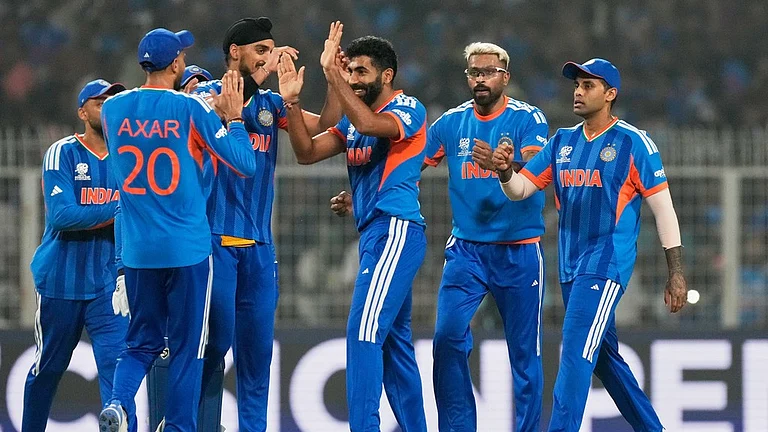This year the book ‘Understanding the Muslim Mind' by Rajmohan Gandhi completes 35 years as the nation wades an era of identity politics.
The first time I came across this title was in the infancy years at St.Stephen’s College and I had let it pass. It was a few years later that I once again encountered the title while visiting a friend in the Jamia civil services hostel. This time the book gave me an enthralling read, in a single sitting, journeying on the author’s youth, and going to that ultimate place of a burning desire to change the world. UTMM is a brilliant assortment of essays on eight Muslim individuals who lived between 1850 and 1960 and who influenced and embodied the Indian Muslims. It traverses Muhammad Ali's Gandhism, Iqbal's pro-activity, Fazlul Haq's statesmanship, Jinnah's grit, Sir Syed's clarion call for modernity, Azad's flagship in Hindu-Muslim unity, Zakir Hussain's minimalism and Liaquat Ali Khan's constancy.
The book is a scholarship of the different spots from which these embodiments of the Muslim community in India exuded representation throughout the British reign and how they eventually swayed the sociopolitical occurrences of India.
An average Indian reader at first would never be certain of what this title holds within its covers. Especially coming from the family of Gandhiji and traversing complex subjects such as Partition and Indian Muslims. Would it be colored by the alleged pro-Muslim bias of Gandhiji himself? Or will it be an anti-Muslim read?
In the words of the author Rajmohan Gandhi - it was a desire to listen in such a spirit to the other side that had led to an 'Understanding the Muslim Mind'. Having no idea how it is going to turn out, he had mentally prepared himself to be told by the Muslims that he had failed to enter their psyche and that it was presumptuous for a Hindu to try to do so. Likewise, he was ready for being labeled by some Hindus as the typical pseudo-secularist unwilling to acknowledge the Muslim wrongs. In decades past, however, both Hindu and Muslim intellectuals have received the book with embracing warmth.
Though the Muslim question pursued Rajmohan since his childhood, he allowed a lot of time to pass before attempting a serious understanding of the subcontinent’s Muslims. In his own words like many compatriots he had mouthed the fact that India is the world’s second-largest Muslim country, yet he had not cared to study the history of the subcontinent's Muslims or the impulses that moved them. As a revealing example, he mentions that it was not until age 40 that he came to know that the Quran explicitly mentions that lakhs of prophets have been sent to cover every nation and people that have existed.
Today decades later few books and authors can be said to be as impartial about the Hindu Muslim issues as Mr Rajmohan in UTMM. The book deliberates on major themes that have surrounded the Muslim identity - the Two-nation Theory, Modernity vs. Traditionalism, political representation, spirituality and mysticism, and the partition of India etc.
The author has an enormously stable and advanced lens focused on the thorny themes concerning one of the largest minority groups anywhere in the world. In the process, the book ensures that the reader comes across enigmatic never before-seen features of personalities of the Indian Muslim community. The book is highly edifying in its historical narrative of things that took place in pre-independent India from the perspective of religion and its political sport. While some of Rajmohan Gandhi’s work on Hyderabad and partition may not be accurate, ‘Understanding the Muslim Mind’ is a beautiful triumph which is balanced and unbiased in every way.
The author has a profound assessment of the context and the true landscape of the times he has written about. He has truly navigated the mental depths of the people he uses to canvass his assessment. The author says - "Judging their own community by its highest ideals, both Hindus and Muslims nonetheless judged the other community by its lowest deeds."
The book is also recommended on the strength of its theme coverage, writing eminence and a successful comprehension of the psyche of the other. In its content, the book would resonate with any Indian who has ever given a thought about his/her fellow Muslim Indian compatriot. This book will definitely help an average Indian in greatly understanding the Indian Muslims and their make. 35 years old, UTMM is freely available on Google books and an Urdu translation exists somewhere in the market.
At this point, one wholeheartedly desires for a highly essential Hindi translation that makes this mini masterpiece accessible to the masses in India. As the book begins Rajmohan Gandhi is 12 years old and walking down the Barakhamba road on 15th August 1947. The sublimity persists as he closes the preface by thanking his wife Usha without whose support this book would have been impossible.
(Ali Kirmani is a film creative based out of Mumbai.)



















